US News
We’re Missing the Point About Latino Voters
If you believe the collective wisdom of the pundits in this election cycle, Latino voters are a volatile group who are peeling away from Kamala Harris and edging towards Donald Trump.
This analysis makes for clickable headlines, but it represents a fundamental misreading of both Latino voting trends and this election.
Our latest polling, conducted by BSP Research, of 1,900 Latino registered voters in eight battleground states, underscores how misleading it is to treat the fastest-growing group in the country as a binary proposition.
That is especially true in a finely balanced election where a few thousand votes in a handful of states could decide the presidency. (That’s also why we take the trouble to match respondents to voter files and weight them to the demographic breakdowns of the census.)
Across the battleground states in our polling, Harris has increased her lead over Trump since our last survey in August, from 24 to 28 points.
But the divergence and diversity of voting trends among Latinos are clear when you dig into the crosstabs. Among Mexican-Americans, Harris leads Trump by 29 points across eight battleground states in a two-way matchup. Among Puerto Rican-Americans, Harris leads by 22 points.
Among Latinos of South American origin, including newcomers from Venezuela, Harris’ lead shrinks to 12 points. And among Cuban-Americans, Harris is lagging 18 points behind Trump.
Here’s a tale of two battleground states. In Pennsylvania, where Puerto Rican-Americans represent the largest population growth of the last several years, Latinos favor Harris by 33 points –above the mark that Democrats traditionally need to win an election. But in Florida, where Cuban-Americans have been joined by Venezuelan-Americans, Trump has a 7-point lead among Latinos.
The more you ask questions of these different Latino voters, the more we realize how diverse these experiences and points of view really are. For instance, when asked which candidate will protect democracy and uphold the Constitution, Mexican-Americans say Harris by a 37-point margin. Cuban-Americans say Trump by an 8-point margin, which is no small feat for a former president indicted for his role in the January 6th insurrection at the Capitol.
For all these sharp differences, there are also areas of strong alignment on issues that may also come as a surprise to those with a simplistic analysis of what motivates Latino voters.
We asked Latinos if they agreed or disagreed with the notion that it was wrong to make abortion illegal and remove choice, regardless of personal beliefs on the issue. Three-fourths of Mexican and Puerto Rican-Americans agreed, while more than two-thirds of Cuban-Americans held the same position.
Latinos broadly agree on more than reproductive rights. On immigration, 70% of Puerto Ricans say they are more likely to vote for a candidate who creates a path to citizenship for undocumented immigrants living in the United States. Among Cuban-Americans, 71% would support the same candidate.
Read More: Democrats’ Position on Abortion, Not Immigration, May Help Them Hold Latino Voters
At the same time, 76% of Puerto Ricans would support a candidate who increases funding and agents for border security, compared to 77% of Cuban-Americans. Cuban-Americans oppose the proposed expansion of presidential powers under Project 2025 as much as Mexican-Americans. Both groups support raising taxes on billionaires and corporations, while cutting taxes on middle-class families, by huge margins.
These are more than surprising twists to an exceptionally close election cycle. Latinos are not a monolithic voting bloc: we agree on a wide range of issues, and disagree sharply on others. Candidates need to understand the ideological leanings of different Latino communities in different states and be careful with how they talk to the voters who could be the tipping point in a half dozen battleground states.
However, in our bilingual polling of Latinos across the country, fully one in four say the candidates do not understand the needs and issues of Latinos, and have not made an effort to reach out and ask for their vote.
This is not because Latinos are disinterested in the election. In our poll, 87% of Latinos in battleground states say they will certainly or probably vote in this cycle. The vast majority— 93 %—are following news and information about the presidential election.
There are many reasons this election cycle could tilt to one candidate or another in such an evenly-divided country. A poor understanding of the Latino community should not be one of them.
-

 US News1d ago
US News1d agoFlorida Man Arrested and Charged With Planning to Bomb the New York Stock Exchange
-
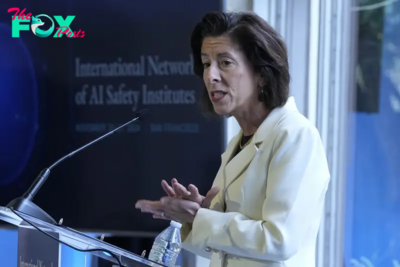
 US News1d ago
US News1d agoU.S. Gathers Global Group to Tackle AI Safety Amid Growing National Security Concerns
-
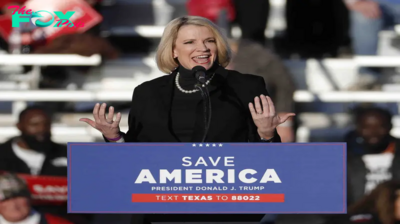
 US News1d ago
US News1d agoTexas Offers Trump Land on U.S.-Mexico Border for Potential Mass Deportations
-

 US News2d ago
US News2d ago4B Is Not the Winning Strategy to Resist the Patriarchy People Think It Is
-

 US News2d ago
US News2d ago‘Bomb Cyclone’ Threatens Northern California and Pacific Northwest
-
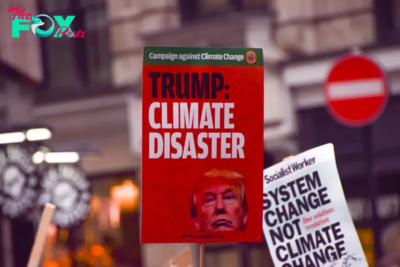
 US News2d ago
US News2d agoClimate Action in Trump 2.0
-
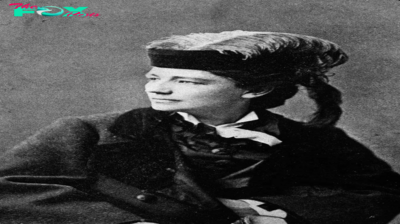
 US News2d ago
US News2d agoWhat Victoria Woodhull’s Presidential Run Can Teach Us About America Today
-
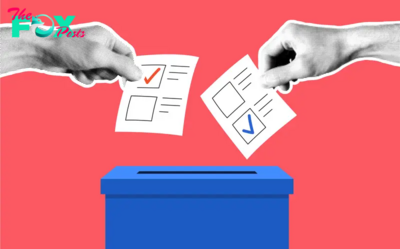
 US News3d ago
US News3d agoThese Races Still Don’t Have a Clear Winner Two Weeks After Election Day



















